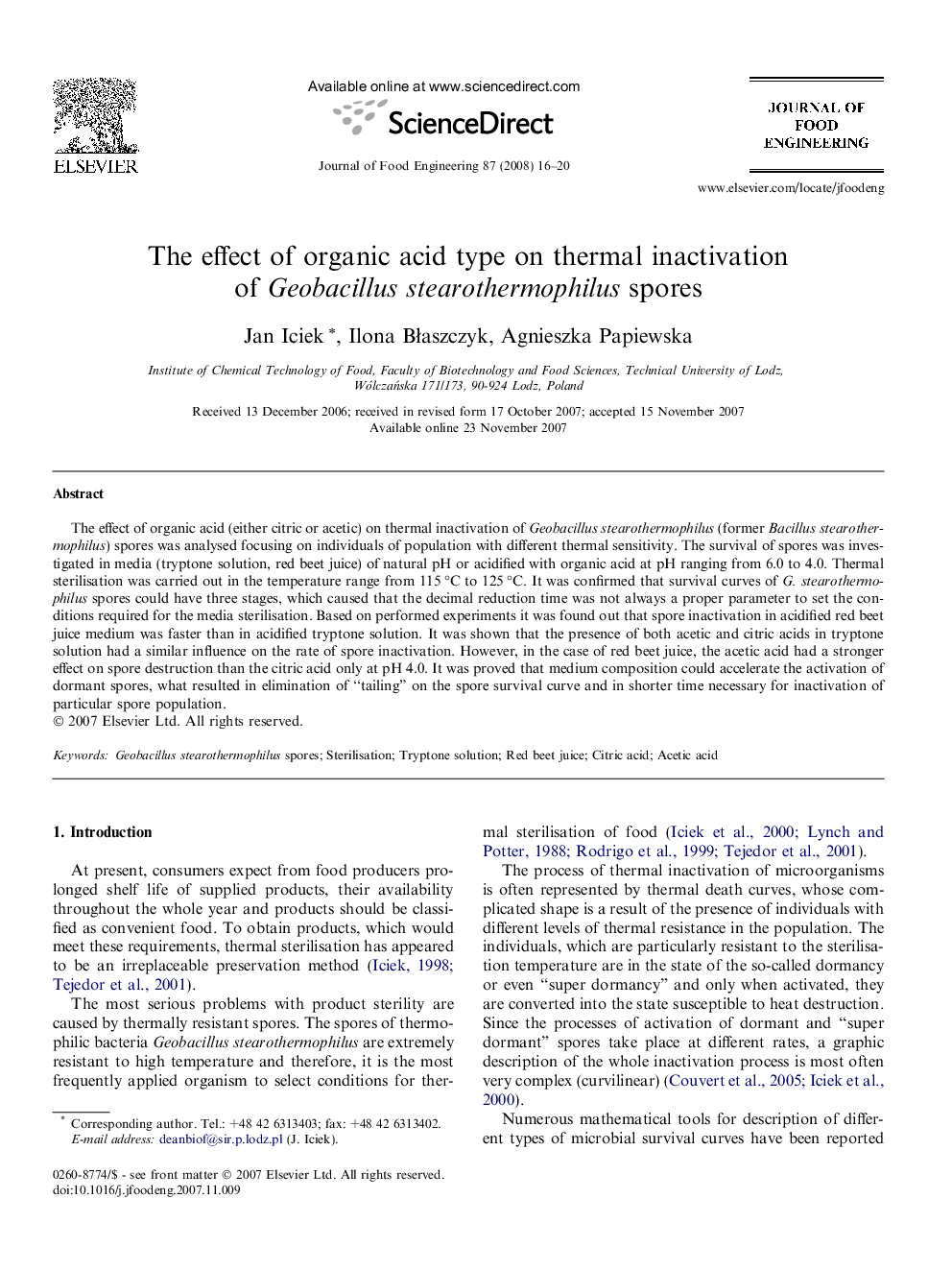| Article ID | Journal | Published Year | Pages | File Type |
|---|---|---|---|---|
| 225555 | Journal of Food Engineering | 2008 | 5 Pages |
The effect of organic acid (either citric or acetic) on thermal inactivation of Geobacillus stearothermophilus (former Bacillus stearothermophilus) spores was analysed focusing on individuals of population with different thermal sensitivity. The survival of spores was investigated in media (tryptone solution, red beet juice) of natural pH or acidified with organic acid at pH ranging from 6.0 to 4.0. Thermal sterilisation was carried out in the temperature range from 115 °C to 125 °C. It was confirmed that survival curves of G. stearothermophilus spores could have three stages, which caused that the decimal reduction time was not always a proper parameter to set the conditions required for the media sterilisation. Based on performed experiments it was found out that spore inactivation in acidified red beet juice medium was faster than in acidified tryptone solution. It was shown that the presence of both acetic and citric acids in tryptone solution had a similar influence on the rate of spore inactivation. However, in the case of red beet juice, the acetic acid had a stronger effect on spore destruction than the citric acid only at pH 4.0. It was proved that medium composition could accelerate the activation of dormant spores, what resulted in elimination of “tailing” on the spore survival curve and in shorter time necessary for inactivation of particular spore population.
